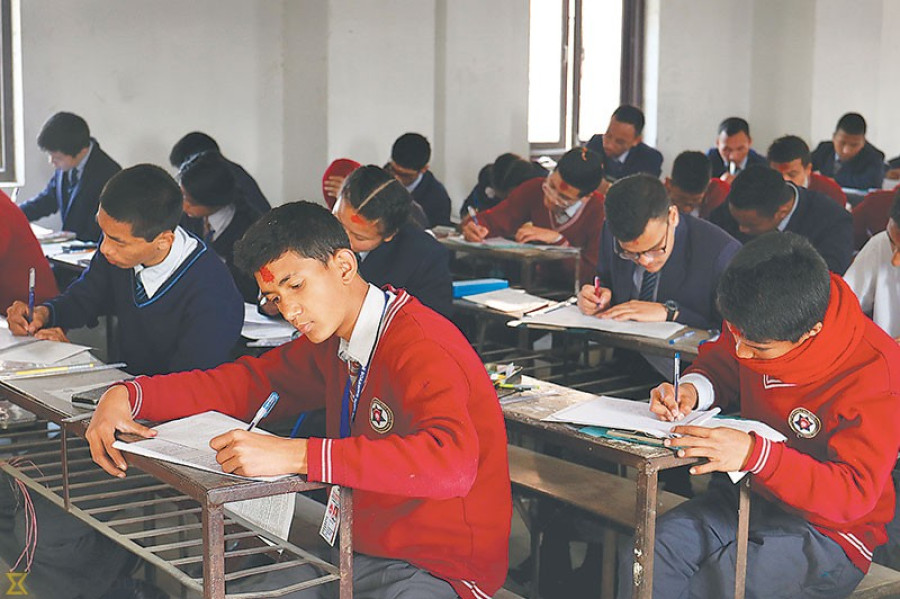National
Against constitution and Education Act, Kathmandu is hell-bent on holding grade 10 exams on its own, officials say
The statute promulgated more than four years ago authorises local governments to manage school education.
Binod Ghimire
Against the spirit of the Constitution of Nepal and provisions in the Education Act, the federal government is preparing to conduct the Secondary Education Examinations on its own next year as well.
The statute promulgated more than four years ago authorises local governments to manage school education though it doesn’t talk specifically about conducting the examinations. Through the eighth amendment to the Education Act in 2016, the government authorised the local governments to hold grade 8 examinations while it opened the door for provincial governments to conduct the tests for grade 10 board exams. The authority to hold the tests for class 11 and 12 remained with the centre.
However, two years after the provincial governments came into operation, the federal government is reluctant to delegate the authority. The Office of the Controller of Examinations on Monday published the routine of the board exams, which will commence from March 19 next year, without even consulting with the provincial governments.
“Provincial ministers are namesake,” Nawal Kishore Sah, social development minister in Province 2, told the Post. “Even I got to know about the examinations from newspapers.”
Sah says he had personally talked with the federal education minister to allow provincial governments to conduct the examinations, but he was asked to wait until the provinces develop their capacity to manage the examinations which are complex in nature. Currently, provincial governments only print the answer sheets and distribute them in the examination centres within their areas. “Our job is limited to that of a postman, transferring the answer-sheets from one place to another,” Sah said. Provincial governments are close to the mid-term of their tenure. Sah suspects the new elections would be held before the provinces get their legal authority.
The provincial Social Development Ministry has the authority to oversee education and health, among other sectors. They also have Provincial Education Development Departments to govern school education including the examinations. However, they are without jobs as the National Examination Board has set up its own offices at the provincial level.
Officials at the departments say since they have worked for years conducting the School Leaving Certificate exams and the SEE, it is wrong to say they don’t have the capacity. “We are competent when posted in the examination controller’s office. The day we come to the provinces, we lack capability. This is ridiculous,” Manoj Gaire, the Province 5 education officer, told the Post. “We are capable of conducting any examinations.” Gaire worked at the examination controller’s office for seven years.
All the officials leading the provincial departments have the experience of conducting the examinations in different capacities. The officials at the centre, however, say, there needs to be legal clarity for allowing the provinces to conduct the SEE tests. They say though the Education Act talks about holding the exams at the provincial level, it doesn’t say whether it is the provincial governments or the subordinate offices of the board that will conduct the tests.
“It is wrong to say the federal government is not willing to pass on the authority,” Ram Raja Khakurel, the examination controller, told the Post. “The day there is legal clarity, the provincial governments will be holding the SEE exams.”
Khakurel claims that the Federal Education Act, which the federal parliament is expected to pass soon, will clear the hurdles. The government is preparing to table a bill in the federal parliament in the winter session that starts on Friday.




 18.12°C Kathmandu
18.12°C Kathmandu














